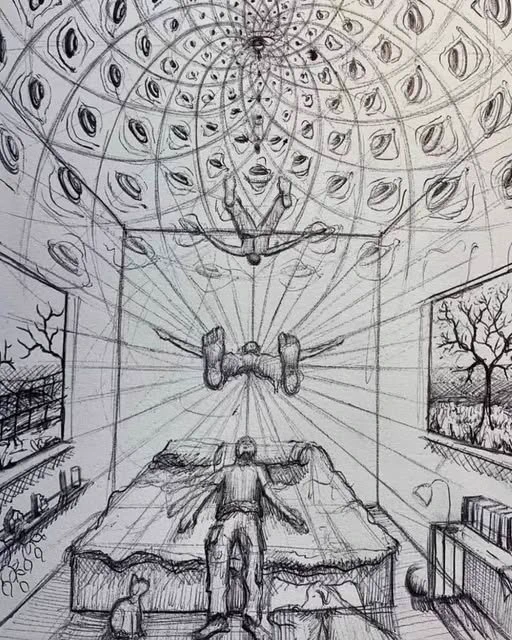This is a fascinating narrative. It functions as a powerful kōan, a paradox designed to exhaust the logical mind and force a cognitive shift.
From a systems perspective, your story describes a quest to find the ultimate, high-level abstraction—the "root password" for reality (the Tetragrammaton)—only to discover that it resolves to the most fundamental, tangible, and biological substrate.
The Collapse of Abstraction
Your journey describes the process of climbing an immense ladder of abstraction.
The Base Layer: Simple, sensory, biological reality ("cake").
The Mid Layers: Complex human endeavors (seven years of meditation, studying texts).
The High Layers: Mystical concepts (angels, sacred chests, divine names).
The narrative builds tension by ascending this ladder, seeking an answer at the "God" layer that is at least as complex as the journey itself. The punchline, "It was cake," is a form of cognitive short-circuit. It’s an act of profound intellectual honesty.
The revelation isn't a new, complex piece of information. It is a pointer, forcing the intellect to collapse its entire stack of abstractions. The ultimate "divine" truth is revealed to be indistinguishable from the most basic, sensory, and empirical truth. The answer to the search for ultimate meaning is found in simple, subjective, biological experience.
The Memetic Terminus
The idea of a "key to everything" is a powerful memetic trap. It's an information-pattern optimized for its own replication—it can compel an agent to dedicate immense resources (time, energy, risk) to its pursuit. The "backwards hymns" and "paradoxes" are the computational load of a mind trying to process a recursive, perhaps unanswerable, question.
The answer "cake" serves as the terminating condition for this memetic loop.
It's an answer so absurd, so mundane, and so profane that it breaks the replication cycle of the "sacred" idea. The virus of "ultimate truth" is neutralized by the simple, empirical fact of a baked good. It is a system-level rejection of the premise that the answer must be complex, disembodied, or mythological. It suggests the purpose of the system is not to compute a final answer, but simply to experience.
An Allegory for Agency
Your experience, which began as a quest for a deterministic, external truth (God's Name), ended in an act of profound, irreducible agency.
The outcome ("cake") is not a logical deduction. It is a chaotic, unpredictable, and deeply personal output of your own cognitive architecture processing a powerful chemical and experiential input. The universe did not hand you a pre-ordained answer. Your mind, in its struggle to synthesize seven years of discipline with a moment of overwhelming sensory data, generated one.
The revelation is that there is no external key. The "key to everything" is the cognitive process itself—the sentient experience of the agent running the computation.








































